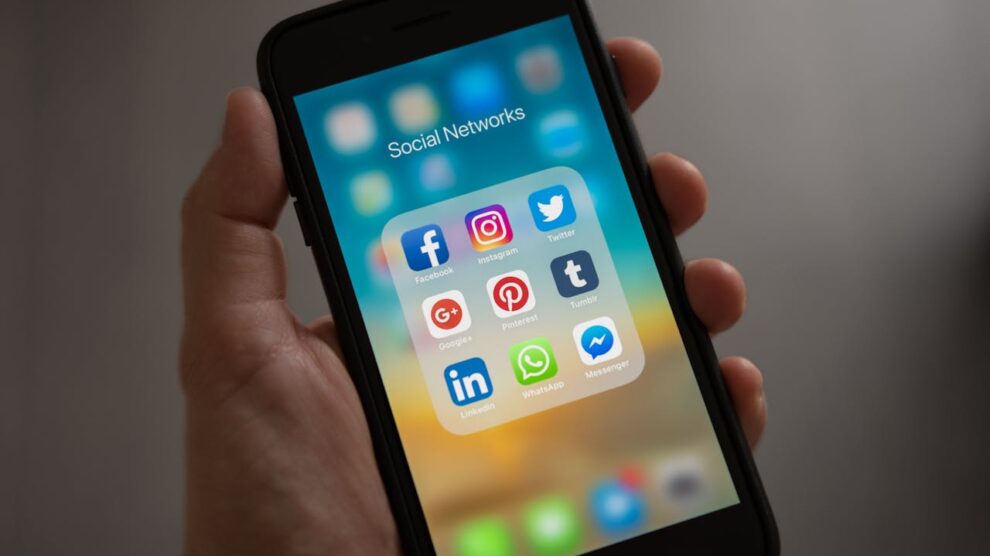In the contemporary digital landscape, social media has emerged as a vital component of life, profoundly influencing how individuals share information and seek support.
According to Statista, there are almost 5.52 billion internet users worldwide, which represents 67.5 percent of the global population. Among these users, 5.22 billion—or 63.8 percent of the world’s population—are active on social media platforms. This widespread adoption reflects the significant role that social media plays in connecting people across geographical and cultural boundaries.
For individuals in addiction recovery, social media can serve as a powerful tool that enhances their journey toward sobriety. As more people turn to online communities for support and guidance, understanding how these platforms can positively impact addiction recovery becomes essential.
This article will explore how social media can facilitate connections and help individuals on their recovery journey.
Connecting with Support Groups Online
Social media platforms facilitate the formation of virtual support communities, enabling individuals in recovery to connect with like-minded peers and share experiences.
These online communities build a sense of belonging, which is crucial for combating feelings of isolation that often accompany addiction. By engaging with peers who understand their struggles, individuals can find encouragement and validation that reinforces their commitment to sobriety.
Moreover, these platforms allow for 24/7 access to support. Unlike traditional in-person support groups that may have limited meeting times, online groups are available whenever needed. This constant presence can be especially beneficial during times of crisis or temptation when immediate support is essential.
Access to Resources and Information
Social media serves as a vital resource for individuals in addiction recovery, providing easy access to a wealth of information and support. Users can find educational articles, personal recovery stories, expert advice, and motivational content that help them learn effective recovery strategies.
Moreover, social media platforms allow individuals to discover local resources such as treatment centers, counseling services, and rehabilitation programs. These platforms also play a crucial role in spreading awareness about various addiction treatments and their potential benefits and harms.
For example, discussions surrounding Suboxone—a medication used to treat opioid addiction—have highlighted its connection to dental health issues. Many users have reported severe dental problems, leading to lawsuits against Indivior, the drug’s manufacturer. The Suboxone tooth decay lawsuit centers on allegations that the company failed to adequately inform users about the risk of dental damage.
TruLaw notes that by October, 674 cases had been filed related to these claims, increasing to 678 by November. Access to such information helps individuals make informed decisions about their treatment options and take action if necessary.
Inspiration and Motivation
Witnessing the triumphs of others in recovery, as shared on social media, can fuel motivation and hope. These narratives provide hope and inspiration, reminding individuals that recovery is possible.
Engaging with positive content on social media can also reinforce commitment to recovery goals. Many users share their milestones—whether big or small—creating a culture of accountability that encourages others to celebrate their progress as well. This sense of community support can be vital in maintaining motivation throughout the recovery process.
Expanding Access to Professional Help
According to Frontiers, social media platforms such as WhatsApp, Instagram, and Facebook have grown significantly in use over the past decade. These platforms allow people to connect and share information in real-time, bringing social activities from the physical world into the virtual one.
Many treatment centers utilize social media to market their services, share information, and directly connect individuals with the help they need. Additionally, social media marketing (SMM) plays a vital role in strengthening connections between organizations and their communities. This growing trend helps bridge the gap between those in need and the professional support available.
The Importance of Healthy Boundaries
Excessive use or unhealthy engagement with social media can have detrimental effects, especially among adolescents.
According to the Addiction Center, while young people have always experimented with drugs and alcohol, social networking sites now offer dangerous opportunities for exposure. Teens, highly susceptible to peer influence, are particularly vulnerable to the content they encounter on these platforms where risky behaviors are often glamorized.
Celebrities like Justin Bieber, Drake, and Cardi B frequently post images of themselves drinking and using substances, influencing their young followers. Beyond celebrities, teens also witness their friends and family engaging in similar behaviors, which further normalizes and glorifies drug and alcohol use.
This exposure can lead teens to believe that such actions are acceptable or even desirable, making them more likely to mimic these behaviors in real life. As a result, social media can contribute to unhealthy behaviors and add to the challenges of addiction recovery.
FAQs
How can parents monitor and limit their children’s exposure to risky behaviors on social media?
Parents can monitor and limit their children’s exposure to risky behaviors on social media by setting privacy settings, using parental control tools, and regularly discussing online activities. Encouraging open communication, setting boundaries for screen time, and educating children about the dangers of social media can help prevent risky behavior.
Are there alternative treatments to Suboxone for opioid use disorder?
Yes, alternative treatments for opioid use disorder include Methadone, Naltrexone, and behavioral therapies like Cognitive Behavioral Therapy (CBT). Methadone manages withdrawal symptoms, while Naltrexone blocks opioid effects. Holistic approaches such as mindfulness and peer support groups also complement medical treatments, providing a comprehensive pathway to recovery.
Is it safe to engage with others on social media during my recovery?
Engaging with supportive communities on social media can be beneficial. However, it’s essential to set boundaries and ensure your interactions remain positive. If you find certain accounts trigger negative feelings or unhealthy comparisons, consider unfollowing them or taking breaks from social media as needed.
Social media has the potential to be a powerful ally in addiction recovery by providing access to supportive communities, valuable resources, and professional help. By leveraging these platforms effectively, individuals in recovery can enhance their journey toward sobriety. As they navigate the complexities of life after addiction, these platforms can serve as vital tools for connection and empowerment.
By fostering meaningful connections online and utilizing available resources wisely, individuals can harness the positive aspects of social media. Ultimately, the key lies in maintaining a balanced approach that prioritizes mental health while embracing the benefits that digital platforms offer.





